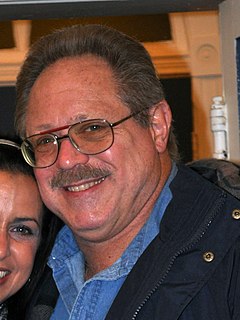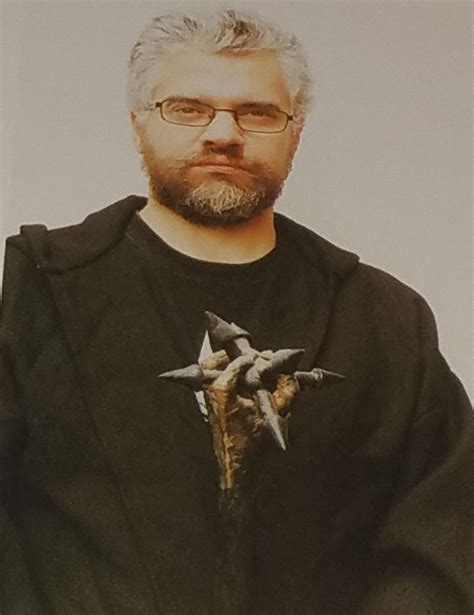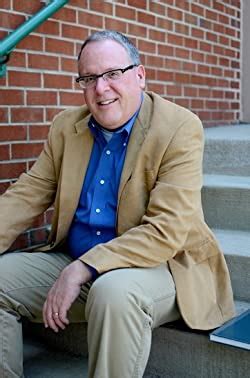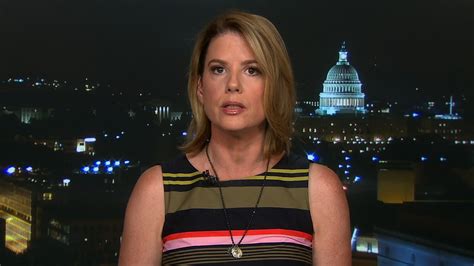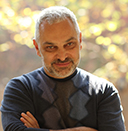A Quote by Richard Hamming
Most people like to believe something is or is not true. Great scientists tolerate ambiguity very well. They believe the theory enough to go ahead; they doubt it enough to notice the errors and faults so they can step forward and create the new replacement theory. If you believe too much you'll never notice the flaws; if you doubt too much you won't get started. It requires a lovely balance.
Related Quotes
If the theory accurately predicts what they [scientists] see, it confirms that it's a good theory. If they see something that the theory didn't lead them to believe, that's what Thomas Kuhn calls an anomaly. The anomaly requires a revised theory - and you just keep going through the cycle, making a better theory.
I believe in the theory of evolution, but I believe as well in the allegorical truth of creation theory. In other words, I believe that evolution, including the principle of natural selection, is one of the tools used by God to create mankind. Mankind is then a participant in the creation of the universe itself, so that we have a closed loop. I believe that there is a level on which science and religious metaphor are mutually compatible.
It is truly excellent to have someone believe in you and your ability to write. But I think it is just as helpful to have people who don't believe in you, people who mock you, people who doubt you, people who enrage you. Fortunately, there is never a shortage of this type of person in the world ... write for yourself. Write for the story. And write, also, for all of the people who doubt you. Write for all those people who are not brave enough to do this grand and wondrous thing themselves. Let them motivate you.
Henceforth, whilst there are a great many theories and models proposed as to how, or why, magic works (based on subtle energies, animal magnetism, psychological concepts, quantum theory, mathematics or the so-called anthropomorphic principle) it is not a case that one of them is more 'true' than others, but a case of which theory or model you choose to believe in, or which theory you find most attractive. Indeed, from a Chaos Magic perspective, you can selectively believe that a particular theory or model of magical action is true only for the duration of a particular ritual or phase of work.
Doubt is most often the source of our powerlessness. To doubt is to be faithless, to be without hope or belief. When we doubt, our self-talk sounds like this: 'I don't think I can. I don't think I will.'... To doubt is to have faith in the worst possible outcome. It is to believe in the perverseness of the universe, that even if I do well, something I don't know about will get in the way, sabotage me, or get me in the end.
The trickle-down theory of economics has it that it's good for rich people to get even richer because some of their wealth will trickle own, through their no doubt lavish spending, upon those who stand below them on the economic ladder. Notice that the metaphor is not that of a gushing waterfall but of a leaking tap: even the most optimistic endorsers of this concept do not picture very much real flow, as their language reveals" pg. 102.
The average religious person has their beliefs, but they're not trying to get people fired who don't have their beliefs. But zealots do do that. It's not enough for them to believe it; they can't tolerate other people who don't believe what they believe, and they have this absolute certainty that they're right.
Our senses perceive no extreme. Too much sound deafens us; too much light dazzles us; too great distance or proximity hinders ourview. Too great length and too great brevity of discourse tends to obscurity; too much truth is paralyzing.... In short, extremes are for us as though they were not, and we are not within their notice. They escape us, or we them.
Absurdism, like methodical doubt, has wiped the slate clean. It leaves us in a blind alley. But, like methodical doubt, it can, by returning upon itself, open up a new field of investigation, and in the process of reasoning then pursues the same course. I proclaim that I believe in nothing and that everything is absurd, but I cannot doubt the validity of my proclamation and I must at least believe in my protest.
I don't believe in a perfect world. I don't believe it's achievable, and I believe the people who try to achieve it usually end up turning it into something like Cambodia or something very similar because purity tests set in. Are you ideologically pure enough to be allowed to live? Well, it turns out that very few people are, so you end up with a big powerful struggle and a mass killing scene.
If I wanted to doubt, then I could doubt endlessly, but at some point a person has to stop questioning and act, and at that point you have to trust something to be true. You have to act as if something is true, and so you choose the thing you have the most reason to believe in, you have to live in the world that you have the most hope in.



